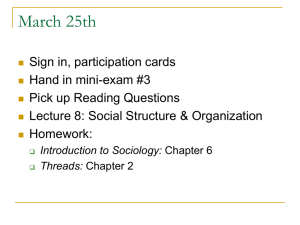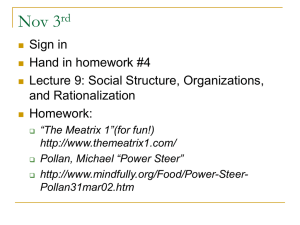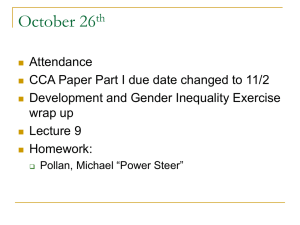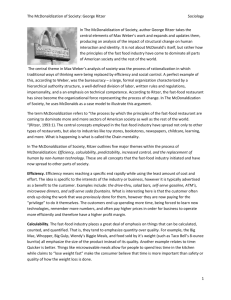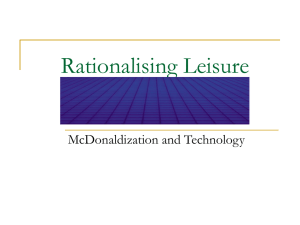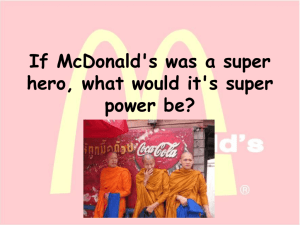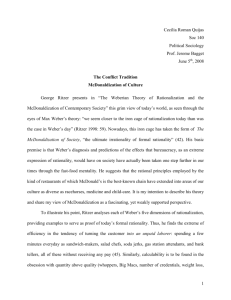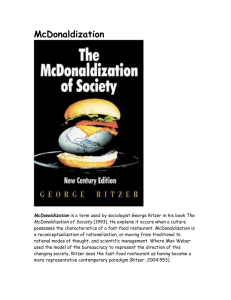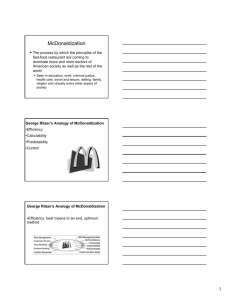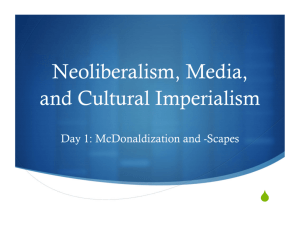Alienation: How have we become less connected?
advertisement
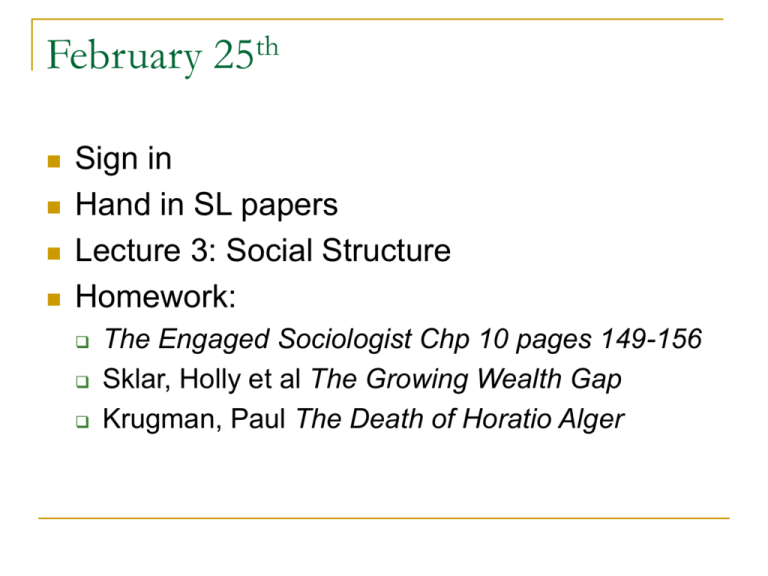
February th 25 Sign in Hand in SL papers Lecture 3: Social Structure Homework: The Engaged Sociologist Chp 10 pages 149-156 Sklar, Holly et al The Growing Wealth Gap Krugman, Paul The Death of Horatio Alger Your social connections Who can you depend on? How do you feel connected to others? What does your social capital look like? Do you have bridging social capital? Explain where it comes from? Do you have bonding social capital? Explain where it comes from? Social Structure The social structure of a society – how society is organized – shapes how we are connected to others Social institutions – family, economy, education Patterns of behavior and expectations Social Groups: Primary: strong, intimate ties (family, friends) Secondary: weak, superficial ties (work, school) Modern Social Structure: Rationalization Rationalization: process by which thought and action are no longer rooted in emotion, tradition, but become rooted in ‘value-rational’ thought and action Value –system (culture) Institutional Organization The Cow Hindus – symbol of everything alive McDonalds – “means to an end” McDonaldization of Society McDonaldization: “process by which the principles of the fast food restaurant are coming to dominate more and more sectors of society” – George Ritzer Efficient Quantification Predictability Non-human Technology Efficiency Efficiency is the choosing the fastest means to an end, with the least amount of cost or effort. The idea of efficiency is specific to the interests of the industry or business, but is typically advertised as a benefit to the customer. Examples: the drive-up window, self-serve gasoline, ATM's, The customer often ends up doing the work that previously was done for them. We end up spending more time, being forced to learn new technologies, remember more numbers, and often pay higher prices Quantification & Calculation Quantification “involves an emphasis on things that can be calculated, counted, quantified. Quantification refers to a tendency to emphasize quantity rather than quality. This leads to a sense that quality is equal to certain, usually (but not always) large quantities of things." (Ritzer 1994:142) Examples of this element include: the "Big Mac," the Whopper," "Big Gulp," Wendy's "Biggie Meals," The credentialing process. Predictability Predictability refers to the attempt to structure our environment so that surprise and difference do not encroach upon our sensibilities. Rational people need to know what to expect. They want to be sure that the fun, satisfaction, taste, and benefits they received last week in Cincinnati will be repeated next week in San Diego. A Big Mac is a Big Mac is a Big Mac. Non-human Technology Non-human Technology: Everything is prepackaged, pre-measured, automatically controlled. The human employee is not required to think, just follow the instructions and push a button now and then. "The next step in this development is to have the customer do the scanning,..." (Ritzer 1994:150). What this means is that the skills and capabilities of the human actor are quickly becoming things of the past. Who we are and how we interact is becoming defined by our dependence upon and subordination to the machine. Irrationality Rational systems → irrational outcomes "Most specifically, irrationality means that rational systems are unreasonable systems. By that I mean that they deny the basic humanity, the human reason, of the people who work within or are served by them." – George Ritzer McDonaldization exercise: Work in Groups Pick one of the following and explain how it is McDonaldized: Movies Gavilan College Popular Music News What are the benefits and drawbacks to a system organized this way? Characterisitcs: Efficient Quantification Predictability Control Non-human Technology A social problem? How do you think McDonalidization affects our connections social capital and connections to others? Bridging & Bonding Social Capital? Do you think McDonaldization is a social problem? Does it create any social problems?
